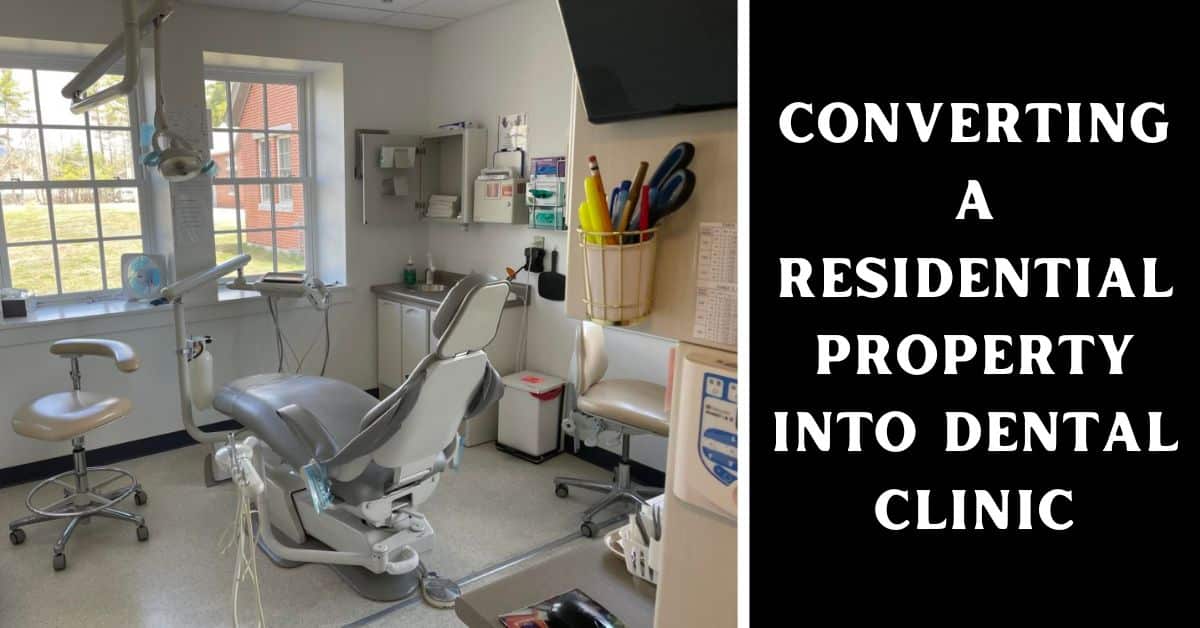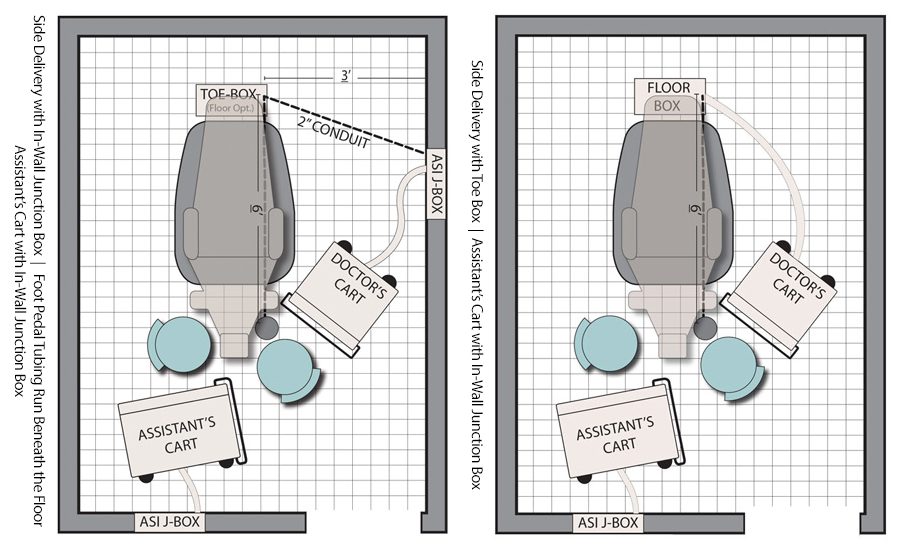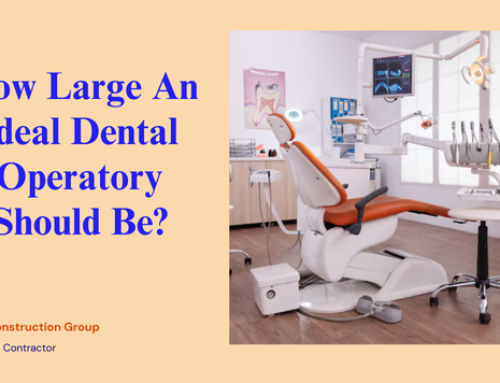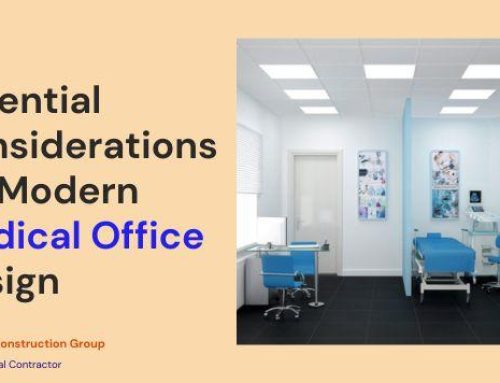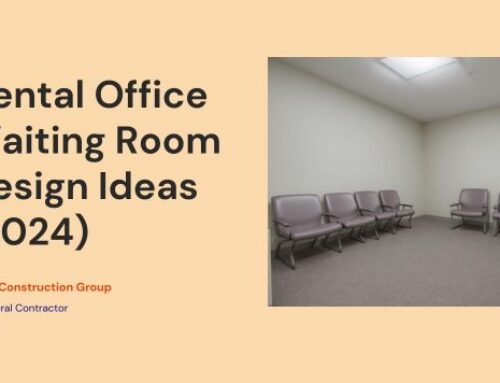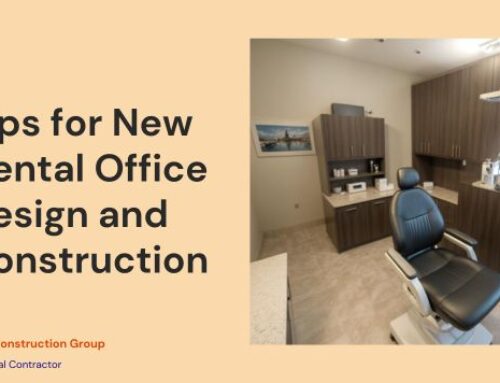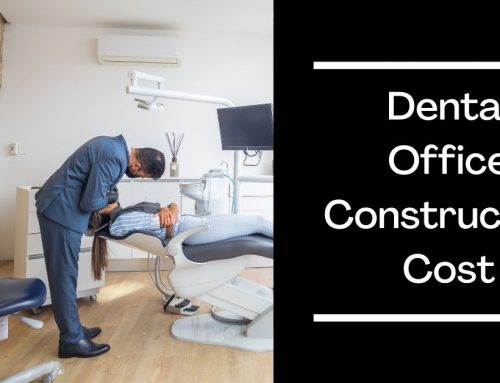Are you a dentist and want to set up a new dental office space? Then, what could be a more cost-effective option to convert your home into a dental practice? Yes, you heard right!
A brand new dental office construction from the ground up with state-of-the-art technology and cutting-edge fixtures means spending thousands of dollars. But, having existing retrofitted properties, such as a residential space, ensures that at least some of the fixtures, lighting, and technology you need will already be in place. Hence, saving in your defined budget!
However, are we allowed to convert our living space into a dental hospital? And if yes, then how can you do that? Will it be profitable? etc. You’ll find the answers to these questions in the following blog. Just, read on and get the right answers.
Contents
- Can You Operate Your Dental Practice In Your Home?
- Follow Rules & Restrictions
- Make Sure to Have All Guaranteed Documents
- Zoning The Property Properly
- Is It Profitable?
- How to Convert a Residential Area Into Dental Practice?
- Zoning
- Accessibility
- Parking
- Future Expansion
- Structural Load
- Accessibility
- Cost
- How Much Space Do You Require For a Dental Clinic?
- Make Dental Office More Welcoming With LUX!
Can You Operate Your Dental Practice In Your Home?
So, you’ve decided to convert your existing living space into a dental hospital. But, there is still a lot to know about operating an office. While constructing, renovating, and converting your existing living structure into a medical office in Los Angeles, it’s necessary to follow the stringent permitting procedures and standard code requirements to qualify for such conversion due to restrictions.
In simple terms, YES, you can successfully operate a dental clinic in your residential area under the Los Angeles ordinances and restrictions. Here are the following tips to build a dental practice!
-
Follow Rules & Restrictions
What are the following restrictions? Generally, restrictions are legal roadblocks that may prevent or disallow certain uses of the real estate you’re interested in. A variety of restrictions are available, including zoning laws (zoning laws usually only allow certain uses for property in a zoned region, such as dental offices) or contractual restrictions, where the owner of the property agrees to exclude others from certain uses.
When negotiating a lease, you’ll probably want the landlord to agree to your exclusivity restriction if you live on rent. But, if you’ve your own residential space, ask your local building department. As a result, you would have the exclusive right to operate your dental hospital in the residential area.
Note: Ensure that you’re allowed to open a dental clinic in the space you’re interested in before renting or purchasing a property.
-
Make Sure to Have All Guaranteed Documents
Being an owner, make sure you’ve all the documents and follow all standard rules for operating a dental practice.
On the other hand, if you live on rent, make sure your potential landlord agrees to represent and warrant that a dental hospital is permitted to use. Your landlord guarantees that you can operate a dental clinic in your leased space if any problems relating to use restrictions will fall under their responsibility to fix or relieve you of further responsibilities.
If you’re interested in leasing a building or shopping center that has other tenants, ask the landlord what exclusivity provisions they have granted other tenants in the building. You may believe that your landlord does not grant anyone an exclusive right to operate a general dental practice, but they may have granted another tenant the right to operate a periodontics practice. You should keep in mind that these types of exclusive rights apply only to properties under the landlord’s control, not to all other properties nearby.
-
Zoning The Property Properly
Before opening a dental office, you need to investigate the zoning for the property and determine the potential zoning issues if there are any.
You may be able to operate a dental clinic in the location that you’re interested in “by right,” which means you don’t need to seek approval from the local government for the use of the space. Be cautious, however, as zoning classifications that allow “medical offices” by right may not allow dental offices.
When zoning prohibits dental practices, what should be done? You will not be able to open your dental clinic until you obtain approval or variance to overcome the zoning restrictions. The transition and opening of your practice can be a time-consuming process, so keep this in mind as you plan the timing. The process can be streamlined by involving experienced legal counsel.
You can also factor in the additional time needed to overcome zoning obstacles by delaying the closing of the current office location if you anticipate the time it’ll take to overcome zoning obstacles. If you would like to give yourself more time to work through the process before you start paying rent, you can try to negotiate with your new landlord for an additional free period.
However, you should keep in mind that not all variances or approvals are granted. So, you should contact an attorney before signing your lease or purchase agreement to negotiate appropriate protections if you can’t obtain the approval or variance you need to operate your dental clinic.
Is It Profitable?
There are various advantages of converting an existing living space into a dental practice. If you live in a large urban area or major city, chances are high that vacant lots are extremely rare, making it quite difficult to build an office from the ground up to suit your needs.
On the other hand, chances are high that you can convert your residential space into a dental office as per your needs. You don’t need to spend thousands or millions of dollars to build an office. With a few technological installments, you can stand up and transform every corner of your house into a practice. In the future, you might even be able to rent or buy your converted office space.
However, while converting your living area, you might face some additional expenses because you may need to rewire your entire office for the specific electrical needs of medical and dental equipment. And you also need to install backup generators. But, this conversion will cost less than buying a new property and constructing a new dental clinic.
Hence, Yes! Converting your house into a dental office is a profitable choice.
How to Convert a Residential Area Into Dental Practice?
Business occupancy of residential property is not an easy task and should be approached with caution and thorough examination. It is important to give proper consideration and attention to the following areas:
-
Zoning
It would be necessary to rezone the property if it’s not currently zoned for dental clinic use, which would add several months to the project schedule. Make sure the City Zoning Department can approve the change of zoning classification; if not, find another location. There are many differences between zoning ordinances for residential and commercial properties, such as increased parking, fencing, lighting, drainage, signage, and landscaping for residential properties.
-
Accessibility
You can make or break the deal depending on how easy it is to get into the property. Due to a change in use and safety concerns, an increase in vehicular count and flow may necessitate relocation of the control access drive and or the construction of a new one.
-
Parking
Commercial businesses may achieve adequate parking requirements according to zoning ordinances if parking is shared with other tenants, but dental offices would need higher parking requirements to meet their needs. A small site may not be able to accommodate parking requirements if there is not enough paved surface on a commercial property.
-
Future Expansion
Do you plan to expand this location in the future? Can the expansion and the increased parking be accommodated on the existing land? In order for a site to be the right fit, it must be able to meet your business plan.
-
Structural Load
The structural loading capacity of residential structures is typically less, usually associated with the flooring system. Conventional framing may need to be upgraded or replaced to meet minimum structural loading requirements.
-
Accessibility
A slab-on-grade construction may not require handicap ramps when it is made of conventional farming or conventional framing. Providing accessibility is directly related to the Americans with Disabilities Act, which lays out regulations and standards that must be adhered to, including.
But it’s not limited to – the minimum width of public doors, the minimum width of corridors, the minimum floor clearances on both sides of the doors, the minimum clearances on both sides of the door latches, the minimum/maximum heights of work counters, and the accessibility of public restrooms.
-
Cost
There are many reasons to consider converting a residential property into a dental office location, and many have done so; however, every property should be inspected and scrutinized in accordance with today’s Building Codes, Accessibility Standards, Guidelines, and costs, for the reasons outlined above, rather than comparing it to another’s conversion project from years ago.
The conversion of a residential area into a commercial building is often done for the sake of preserving the building’s architecture. However, it may require extensive upgrades and replacements. And when finished, the dental office construction costs just as much, but not more, and keeps it within the confines of the existing area. The cost is comparable to building a brand-new dental clinic construction from scratch.
Even if a property can be acquired significantly below market value, the retrofitting costs may be more burdensome, especially for start-up practices. An architect or engineer should perform a feasibility study as part of the due diligence process to determine whether the property will meet the business plan’s requirements.
To know about the estimated cost of converting your house into a dental clinic, please contact experienced dental office contractors and designers.
How Much Space Do You Require For a Dental Clinic?
Depending on how many operating rooms you want and the space needed in the surrounding area for zoning purposes, you will need to determine the size of your dental office construction lot.
Your dental office buildout will require between 300 and 400 square feet for each treatment room. As a result, an office with six treatment rooms would require 1,800-2,400 square feet. This applies to all converted, leased tenant space and new construction.
A standalone office requires a minimum lot size equal to nine times the building area plus any parking requirements, green areas, and surface water retention/detention. Approximately 16200-21600 square feet (0.37-0.5 acres) are required for six-treatment dental clinic construction.
For more detail, ask our dental office architect. We properly examine your area and assist in converting your space in every single stage.
Make Dental Office More Welcoming With LUX!
The dental clinic you run represents your vision and values as a dental doctor. It should reflect who you are and the quality of care you provide. It would be our pleasure to bring your visions to life through insightful designs that meet your clinical requirements as well as aesthetic criteria while optimizing functionality and efficiency.
Lux Construction Group is a general construction company in Los Angeles that helps people build a successful dental practice. The extensive knowledge and experience of our dental office contractors within the dental industry allow us to understand the functionality and unique needs of the industry. Let us know we’ll hear your dental clinic plan and assist you at every phase.
So, contact us at (424) 248-5090 for more information about how to create a customized plan for your present or future dental office. We’re looking forward to speaking with you soon.

